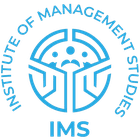Vocational Education and Training
Higher Education
Our Institute of Management Studies courses are approved by the Australian government, and we are a registered training organisation with the RTO no. 45835. We aim to provide our students with a quality education that prepares them for success in the education sector.
Students choose us to upgrade their career because we offer a quality education that prepares them for success in the education sector. Our Institute of Management Studies courses are designed to equip students with the latest knowledge and skills required to excel in their respective fields.
We employ a range of innovative teaching methodologies that enhance the learning experience of our students, providing them with practical and theoretical knowledge that is highly valued in the job market. Our faculty members are industry experts who bring their real-world experience into the classroom, preparing our students to meet the demands of the industry.
We also offer various opportunities for professional development, including workshops, internships, and job placement opportunities, ensuring that our students are well-equipped to achieve their career goals.

This qualification reflects the role of individuals who apply highly specialised knowledge and skills in the field of organisational learning and capability development. Individuals in these roles generate and evaluate complex ideas. They also initiate, design and execute major learning and development functions within an organisation. Typically, they would have full responsibility and accountability for the personal output and work of others.
This qualification may apply to leaders and managers in an organisation where learning is used to build organisational capability. The job roles that relate to this qualification may also include RTO Manager and RTO Director.
Learn moreThis qualification reflects the role of individuals who apply advanced knowledge and skills in a range of strategic leadership and management roles.
Individuals at this level make high level autonomous decisions and use initiative and judgement to plan and implement a range of leadership and management functions in varied contexts. They have full responsibility and accountability for personal outputs and for the work or function of others.
They use cognitive and creative skills to review, critically analyse, consolidate and synthesise knowledge, in order to generate ideas and provide solutions to complex problems. They use communication skills to demonstrate their understanding of theoretical concepts and to transfer knowledge and ideas to others.
Learn moreThis qualification applies to individuals working in a work health and safety (WHS) role who provide a broad range of technical knowledge and skills, and have some limited responsibility for the output of others.
The qualification applies to those working as supervisors, WHS personnel, and workers in other WHS-related roles who manage risks effectively, apply relevant WHS laws, and contribute to WHS within the workplace in known or changing contexts with established parameters.
Learn moreThis unit describes the skills and knowledge required to provide a first aid response to a casualty in line with first aid guidelines determined by the Australian Resuscitation Council (ARC) and other Australian national peak clinical bodies.
The unit applies to all persons who may be required to provide a first aid response in a range of situations, including community and workplace settings.
Learn moreThis unit describes the skills and knowledge required to perform cardiopulmonary resuscitation (CPR) in line with the Australian Resuscitation Council (ARC) guidelines. This unit applies to all persons who may be required to provide CPR, in a range of situations, including community and workplace settings.
Learn moreThis unit describes the skills and knowledge required to control vehicle and pedestrian traffic using stop-slow bats, hand signals and approved communication devices in the resources and infrastructure industries.
It applies to those working in operational roles. They generally work in teams in live traffic environments under some degree of supervision.
Learn moreThis unit of competency specifies the mandatory work health and safety training required prior to undertaking construction work. The unit requires the person to demonstrate personal awareness and knowledge of health and safety legislative requirements in order to work safely and prevent injury or harm to self and others.
It covers identifying and orally reporting common construction hazards, understanding basic risk control measures, and identifying procedures for responding to potential incidents and emergencies. It also covers correctly selecting and fitting common personal protective equipment (PPE) used for construction work.
Learn moreThis unit describes the skills and knowledge required to communicate in the workplace in the resources and infrastructure industries and other industries with relevant work practices and procedures.
It applies to those working in operational roles. They generally work under supervision to undertake a prescribed range of functions involving known routines and procedures and take some responsibility for the quality of own work outcomes.
Learn moreThis unit describes the skills and knowledge required to monitor and control traffic with portable traffic control devices and temporary traffic signs according to traffic management plans and traffic guidance schemes.
It applies to those working in operational roles. They generally work in teams in live traffic environments under some degree of supervision.
Learn moreThis unit describes the skills and knowledge required to work safely and follow work health and safety (WHS) policies and procedures in the resources and infrastructure industries.
It applies to those working in operational roles. They generally work under supervision to undertake a prescribed range of functions involving known routines and procedures and take responsibility for the quality of own work outcomes.
Learn more